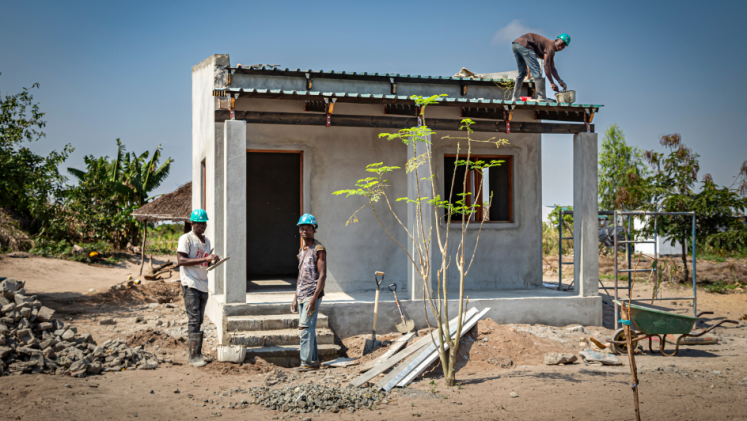Climate-related planned relocations are complex, long-term processes. As increasingly important adaptation strategies, they can address but also cause losses and damages and human rights violations if not carried out well. Planned relocation is fundamentally about improving people's living conditions and well-being. It should involve dialogue, consultation and collaboration with affected communities, respecting their wishes and promoting inclusivity, dignity, and self-determination. However, there is only limited guidance and tools for policymakers. As an output of the 2023 Climate Academy, here are five key insights from a policy brief by the UNU-EHS Environment and Migration: Interactions and Choices (EMIC) division to help governments and policymakers integrate planned relocation into their climate action strategies.
Planned relocation should always follow a people-centred approach
Planned relocation is most effective when it centres on the needs of affected people and communities. This involves engaging them in all decisions and leveraging local knowledge systems and practices. Relocation efforts should be inclusive, ensuring the participation of all affected individuals, including women, children and persons with disabilities.
Clear national frameworks are key for successful planned relocation
A clear national framework or guidelines, developed with input from affected communities, can help safeguard their rights. These frameworks should include legal and policy guidelines, monitoring and evaluation mechanisms, and respect both formal and informal land rights.
Effective planned relocation requires long-term commitments
As complex a process as planned relocation demands proactive planning, sustainable financing and ongoing support beyond the physical relocation. Sustainable and predictable funding sources are essential, as well as partnerships to share financial burdens and develop technical capacity.
Clear communication is essential to align risk perceptions while respecting self-determination
Governments and affected communities often have different perceptions of climate risks and the need for relocation. Risk assessments should consider both economic and non-economic losses and respect people's right to self-determination.
Planned relocation strategies should address both economic and non-economic losses
Planned relocation inevitably involves both economic and non-economic losses, such as the cultural, social and spiritual impacts of relocation. Acknowledging and addressing these losses through consultation, livelihood support, mental health programmes and activities that maintain cultural connections is crucial.





